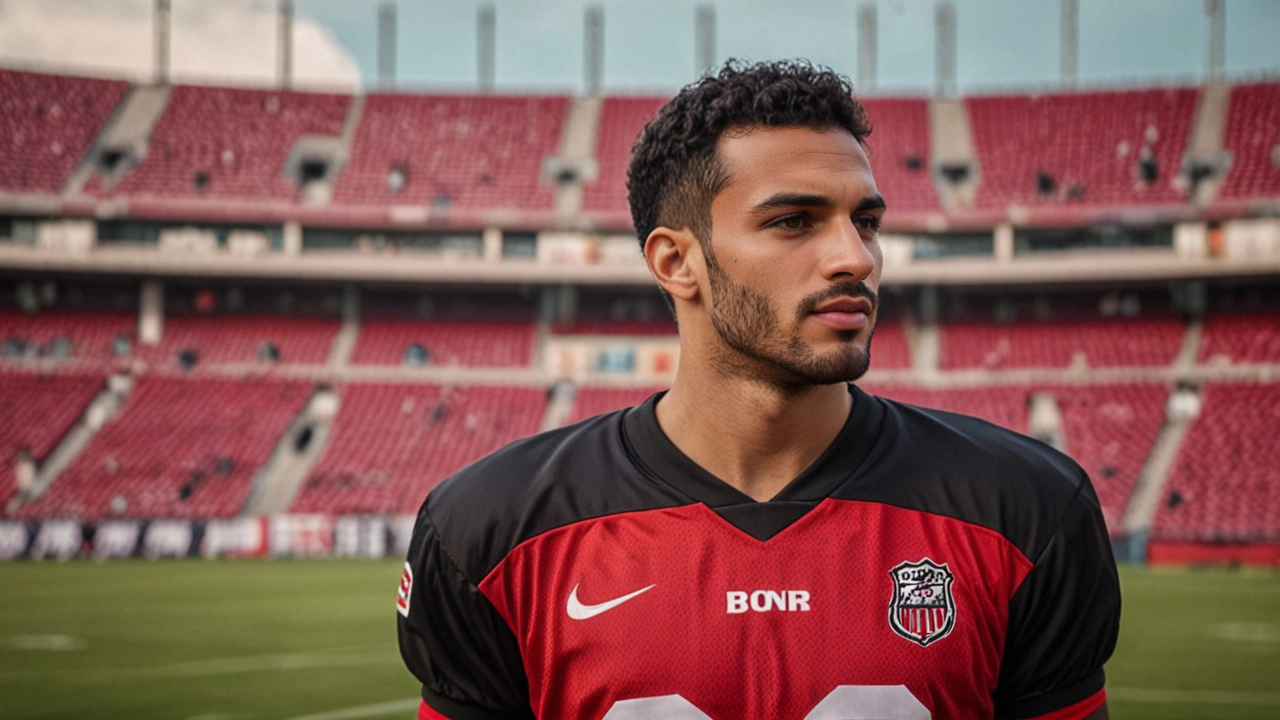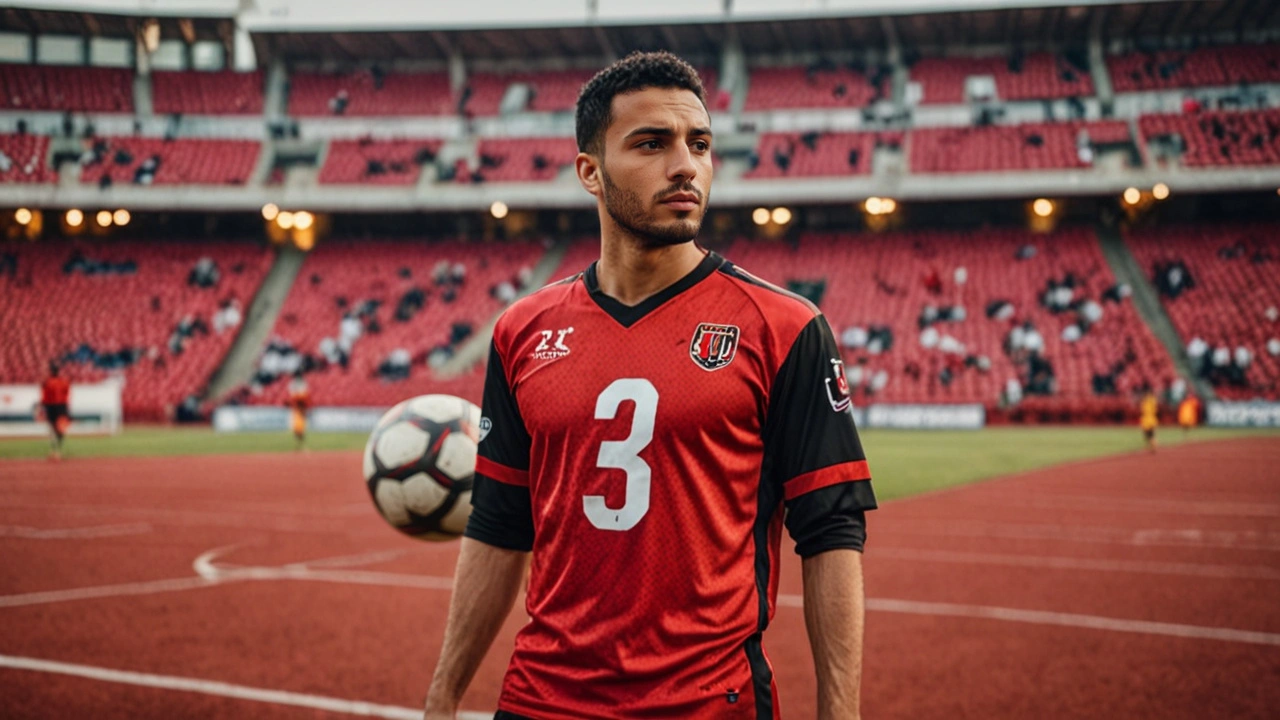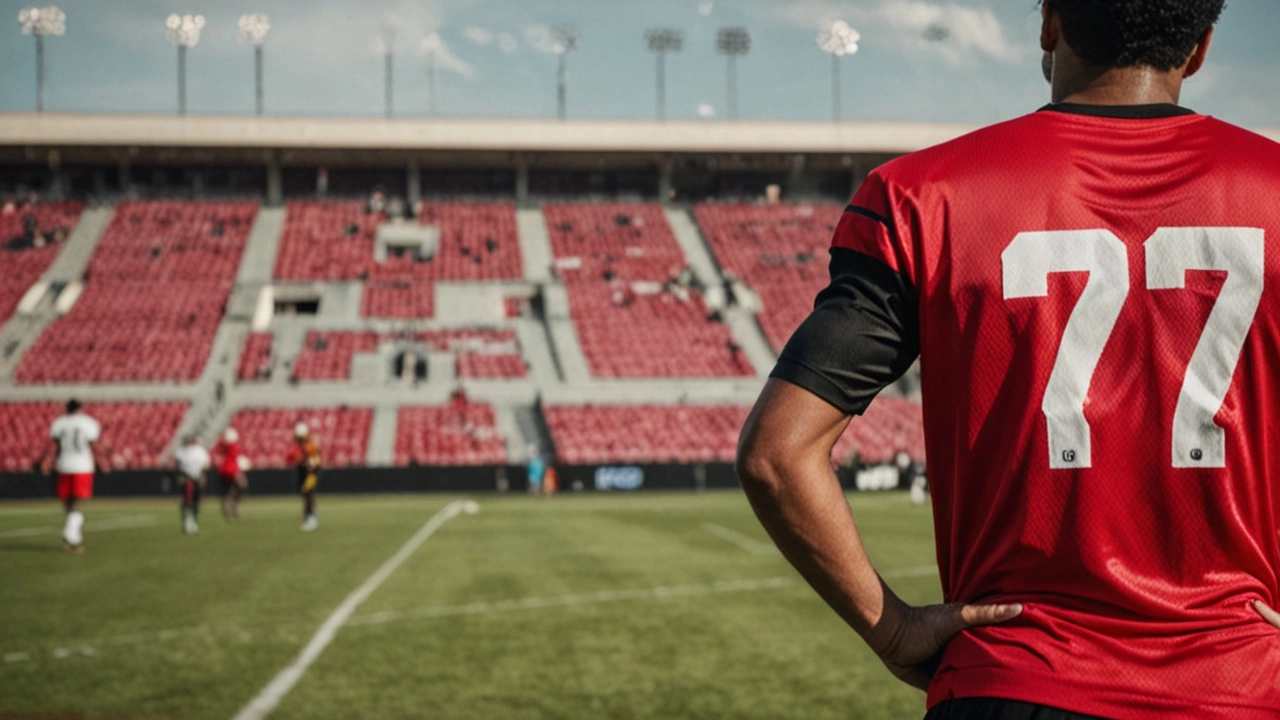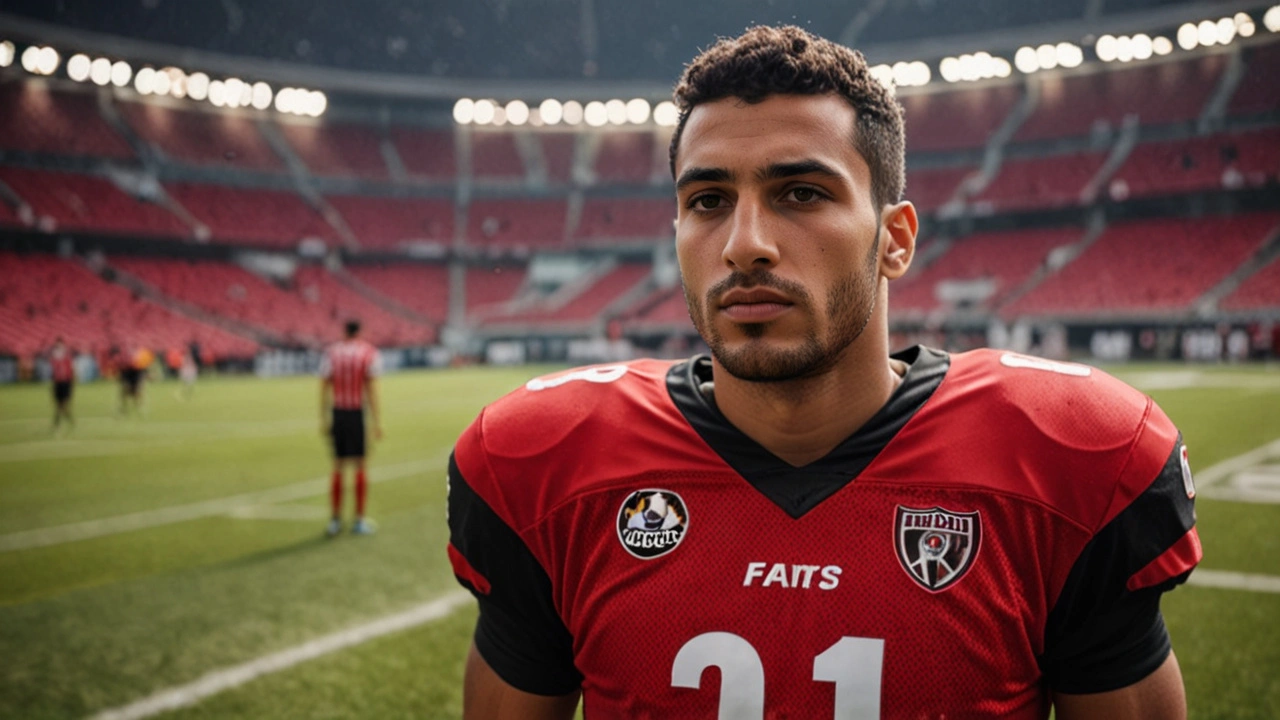8 Jul 2024
- 8 Comments
Tragedy in Egyptian Football: The Passing of Ahmed Refaat
The Egyptian football community is reeling from the sudden and tragic death of Ahmed Refaat, a 31-year-old international player who passed away due to complications following a heart attack he suffered on March 11th, 2024. The winger, who represented his country on seven occasions, succumbed to his health issues after a prolonged battle that saw him in and out of the hospital. His club, Modern Future FC, announced the somber news over the weekend, specifying that Refaat had been under intensive medical care before his heart could no longer endure the pressure.

The Fateful Heart Attack
Ahmed Refaat's ordeal began during a match in March when he collapsed suddenly on the pitch. The incident immediately raised alarm among teammates and fans alike. Medical staff swiftly transported him to the hospital, where he was resuscitated and placed in the intensive care unit. For nearly a month, Refaat remained in a critical state, clinging on to life while undergoing extensive medical treatment. Despite these efforts, his condition necessitated the installation of a pacemaker to stabilize his heart rhythm. Upon his discharge, further medical evaluations were scheduled to monitor his recovery. For a brief moment, there was hope when Refaat indicated feeling rejuvenated during a television interview last month.
A Glimmer of Hope
During the weeks following his initial recovery, Refaat made efforts to return to a semblance of normality. He appeared publicly, even visiting his teammates at Modern Future FC, radiating optimism and strength. These moments provided a brief respite for everyone who knew and supported him. The football community, fans, and his loved ones held onto the beacon of hope that Refaat might fully recover and possibly return to the game that he so passionately loved. Unfortunately, this hope was short-lived as his condition deteriorated rapidly in the days leading up to his death.
An Outpouring of Tributes
The news of Ahmed Refaat’s passing sent shockwaves throughout the football world. Prominent figures from the sport paid homage to the talented winger. Among the leading voices was Egypt’s captain and Liverpool star, Mohamed Salah. Salah expressed his sorrow, saying, 'May God continue to bless his family and all his loved ones.' His heartfelt message resonated deeply with fans and colleagues alike, signifying the profound impact Refaat had on those around him. Additionally, the Confederation of African Football (CAF) president, Patrice Motsepe, extended his condolences, recognizing Refaat's dedication and contribution to the sport in Egypt. Former Egypt coach Carlos Queiroz also reflected on Refaat’s natural footballing talent and gentle nature, a testament to the player's prowess and character both on and off the field.

Remembering Ahmed Refaat
Born in the bustling city of Cairo, Ahmed Refaat’s football journey began at a young age. He swiftly rose through the ranks, showcasing an exceptional aptitude for the sport. His position as a winger leveraged his speed, agility, and sharp instincts, making him a pivotal player for any team he represented. Over the years, his skills on the pitch earned him a place in the national squad, where he proudly donned the Egyptian jersey and brought joy to countless fans. In his international appearances, he scored two goals, each celebrated by his homeland and forever etched in their sporting history.
His Time at Modern Future FC
Refaat’s club career saw him play for multiple teams, but it was at Modern Future FC where he truly made his mark. Joining the club brought with it new challenges, but the determination and passion Refaat carried ensured he remained a standout performer. His contributions on the field were essential to the club’s overall performance, with every game he played reinforcing why he was considered one of Egypt's promising talents. Beyond his footballing abilities, Refaat’s humility and amiable nature made him a beloved figure among teammates, staff, and fans alike.
A Loss Felt Deeply
The impact of Refaat’s passing extends beyond just the football pitch. For many, he was a symbol of perseverance and hope. His journey through recovery was a testament to his strength, and his untimely death serves as a stark reminder of life’s unpredictability. As tributes continue to pour in, there is a collective sense of mourning permeating every facet of the football community in Egypt and beyond. His legacy, however, remains firmly intact, with the memories of his exceptional talents and the moments of brilliance he brought to the game.
Continuing the Fight Against Cardiac Issues in Sports
Ahmed Refaat’s tragic demise has also reignited conversations around cardiac health in sports. Athletes, despite their peak physical conditions, are not immune to such unprecedented medical emergencies. The football community worldwide has faced similar tragedies, sparking initiatives to enhance player health monitoring and emergency response protocols. Refaat’s battle and ultimate passing underscore the urgent need for continued advancements in this critical area to prevent further loss of life.

Wrapping Up
Ahmed Refaat’s story is one of talent, fight, and heartbreak. The Egyptian footballer’s life and career, though tragically cut short, have left an indelible mark on the sport and those who knew him. As tributes honor his memory, the football community is reminded of its fragility and the ever-present need for comprehensive health measures. Refaat’s legacy will undoubtedly inspire future generations of players to not only excel on the pitch but also prioritize their health and well-being.


Mike Malone
July 8, 2024The passing of Ahmed Refaat prompts a reflection on the fragile intersection of athletic ambition and human vulnerability. While the modern sports narrative often celebrates relentless perseverance, it must also acknowledge the inevitable mortality that shadows even the most disciplined bodies. Refaat's journey, marked by a rapid ascent through Egyptian football's echelons, illustrates a dedication that transcended mere competition; it embodied a cultural aspiration for national pride. Yet the heart, an organ both symbolically and physiologically central to life, reminded us of its capriciousness when it faltered on the pitch. The ensuing medical interventions, including resuscitation efforts, intensive care, and the implantation of a pacemaker, underscore the lengths to which contemporary medicine will go to preserve a sporting symbol. Nonetheless, the ultimate outcome-his untimely death-serves as a solemn reminder that no regimen of training can guarantee invulnerability. It behooves the football community, administrators, and supporters alike to reexamine the protocols surrounding cardiac screening and emergency response. Moreover, the emotional resonance expressed by figures such as Mohamed Salah and Patrice Motsepe reinforces the collective grief that permeates beyond the boundaries of a single club. In honoring Refaat's memory, we might also champion a sustainable model of athlete health that balances ambition with precaution. Let this tragedy be a catalyst for systemic improvement rather than a fleeting footnote in sports journalism. The legacy, therefore, must endure not solely through statistics and highlights but through a renewed commitment to safeguarding the heartbeats of those who inspire us on the field.
Pierce Smith
July 8, 2024I appreciate the depth of the previous analysis and would add that the outpouring of solidarity from teammates and rivals alike demonstrates football's unique capacity to unite across divides. While we mourn a talented winger, we must also celebrate the humanity that binds us, transcending club loyalties.
Abhishek Singh
July 8, 2024yeah another player dies and the whole world pretends it matters as if Egypt is the only place with heart problems lol
hg gay
July 8, 2024My heart truly aches for Ahmed Refaat and his family 😢. It’s moments like these that remind us how interconnected the global football family truly is 🌍. The outpouring of love from players like Mohamed Salah to everyday fans shows the depth of compassion embedded in the sport. I’ve seen countless tributes, candles lit outside stadiums, and heartfelt messages that echo across social media platforms. Every story shared feels like a collective hug, wrapping the grieving loved ones in a blanket of support. Let’s keep his memory alive by advocating for better health checks and by sharing his highlights for future generations 🎉. May his spirit continue to inspire young athletes to chase dreams responsibly. Sending strength and endless love to all who knew him 🙏.
Owen Covach
July 8, 2024Refaat’s tale glitters like sunrise over Cairo’s dunes, his legacy etched in vivid, blazing strokes across the pitch-no frills, pure fire.
Pauline HERT
July 8, 2024Such tragedies highlight the urgent need for better cardiac screening in sports.
Ron Rementilla
July 8, 2024The death of Ahmed Refaat is a stark illustration of how physical excellence does not immunize an individual from medical vulnerabilities.
Despite rigorous training regimens, athletes remain subject to the same physiological constraints as any other person.
In Refaat’s case, the sudden onset of a heart attack during competition underscores the unpredictable nature of cardiac events.
The subsequent medical response, including resuscitation and the implantation of a pacemaker, reflects the advances in emergency care.
However, the ultimate outcome reveals that even the most sophisticated interventions have limits.
This reality should prompt football governing bodies to reassess the frequency and thoroughness of cardiovascular screening protocols.
Current standards, while improving, may still miss subtle arrhythmic conditions that manifest only under extreme stress.
A proactive approach, integrating regular ECG monitoring and stress testing, could identify at‑risk players before tragedy strikes.
Moreover, clubs should invest in on‑site defibrillators and ensure staff are trained in advanced cardiac life support.
The emotional response from peers, such as Mohamed Salah’s heartfelt tribute, illustrates the deep personal connections within the sport.
These bonds reinforce the moral responsibility of institutions to safeguard the health of those who bring joy to millions.
Beyond technical measures, fostering an environment where athletes feel empowered to report symptoms without stigma is essential.
Historically, many cardiac incidents in sports have been linked to delayed reporting or dismissal of early warning signs.
By encouraging transparency and providing comprehensive medical support, the football community can honor Refaat’s memory through concrete action.
In conclusion, while no system can guarantee absolute safety, a diligent, layered strategy offers the best possible protection for players striving for greatness.
Chand Shahzad
July 8, 2024I wholeheartedly echo these recommendations and would add that collaboration between clubs, national federations, and medical researchers can accelerate the development of more precise screening tools; together we can transform this sorrow into lasting progress.